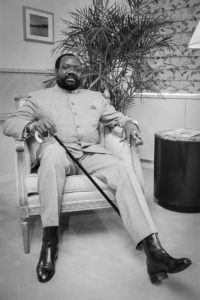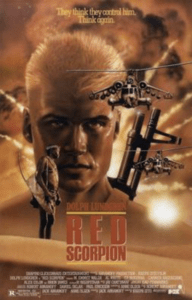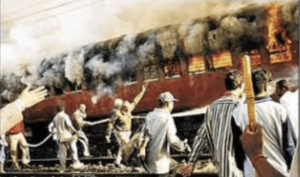
One Man’s Terrorist
Russians always seem to have cutting jokes:
Why is Cuba such a confused country?
The Cuban capital is in Havana.
The Cuban government is in Moscow.
The Cuban population is in Miami.
The Cuban medical system is in Venezuela.
And the Cuban graveyard is in Angola.
Angola, a medium-size country along the coast of southwestern Africa, was one of the last battlefields of the Cold War – a civil war fought on one side by the Communist powers of Cuba, Yugoslavia, Romania, and the USSR backing the People’s Movement for the Liberation of Angola – Labour Party (MPLA) on one side, and the USA and apartheid South Africa backing National Union for the Total Independence of Angola (UNITA) on the other. Both side were notably anti-imperialist and anti-Portuguese fighting to control the country after independence in 1975. Also notably, MPLA and UNITA fought against the Portuguese together, only launching a bloody civil war after the Portuguese military gave up and went home to face their own Carnation Revolution in which had started in 1974. The third partner in the anti-colonialist battle, National Front for the Liberation of Angola (FNLA) was destroyed by MPLA before the ink on the Alvor Accords in January 1975 was dry. The few FNLA survivors joined UNITA and retreated into the bush to wage guerrilla warfare against their former guerrilla comrades in arms.

The lists of supporters of both sides went far beyond governments – civilians and humanitarian organizations from a number of nations were dragged into the conflict, on a scale not normally seen in a small civil war far from anywhere. UNITA’s commander, Jonas Savimbi, had many admirers in Western circles, meeting in Washington with political leaders and rich philanthropists. The founder of Rite Aid drugstores Lewis Lehram organized fundraisers for Savimbi. South African diamond company DeBeers bought military equipment for UNITA in the mid-1990’s. Even Hollywood supported UNITA for a time. In a strange twist of fate fit for a Hollywood movie, in 1989, the apartheid South African government financed the film Red Scorpion. This was an anti-Soviet movie starring Dolph Lundgren, playing a KGB Agent who is supposed to assassinate a popular African revolutionary. However, he sees the light and turns against his Soviet handlers and supports the leader’s rebel group in southeastern Africa against the Soviets. Angola is never mentioned, but anyone who has seen the movie knows the target. Red Scorpion was not very successful, costing $16 million to make and earning only $4 million in revenue. This early portrayal of the Angolan Civil War was eclipsed in 2012, when Call of Duty: Black Ops 2 (COD) has the player assisting Savimbi fighting against the MPLA. COD earned $1 billion in 15 days, being the most successful video game in sales of all time, up to that point. Red Scorpion was poor, but timely; COD was brilliant but was released 10 years too late to help Savimbi, who had been killed by the MPLA in 2002.

The Sex Pistols also released “Anarchy in the UK” in 1976; the MPLA was mentioned along with other terrorist groups, such as the Ulster Defence Association (UDA) and Irish Republic Army (IRA) in the lyrics. Johnny Rotten (John Lydon) never explained his specific animosity toward the MPLA, but MPLA atrocities were in the news at the time juxtaposed with UDA and IRA atrocities.
Perhaps most notably, the Angolan Civil War between MPLA and UNITA itself lasted until 2002. This meant the conflict outlasted Yugoslavia, the USSR, communist Romania, and apartheid South Africa by almost a decade. The Angolans were more dedicated to their ideological struggle than most of their international supporters, who had marched off into the dustbin of history. As with many civil wars, especially in Africa, there were heinous atrocities committed by both sides under cover of ideology, expedience, the quest for power, or simple revenge. Ironically, the last terrorist act, a bombing of a civilian train on 10 August 2001 by UNITA, was so shocking that it ended the war, leading to a lasting peace, and integration between the MPLA and UNITA governments. In 2017, UNITA representatives were elected to 51 out of 220 seats in the Angolan Parliament, and govern peacefully, although with the regular corruption problems present elsewhere in Africa and much of the rest of the developing world.

The Angola Train attack had been a success from a military perspective, and a horrible failure in all other aspects, including the loss of human life. Savimbi was fond of attacks on infrastructure, so he ordered a group of UNITA rebels to set a massive anti-tank landmine on the tracks of a civilian train traveling between Zenza and Dondo, two large civilian centers. The landmine worked, derailing the train. The rebels then proceeded to shoot the survivors of the crash, killing 252 civilians. The world was suitably outraged. Eventually the United Nations Security Council (UNSC) condemned the attack, and gave cover to MPLA to finish the war. A renewed MPLA offensive located Savimbi and killed him, mortally wounding his top general, Antonio Dembo. The deaths of Savimbi and Dembo drained the rest of UNITA leadership of any desire to fight, and they negotiated for peace.
In a way, the outrage caused by the 2001 train attack caused the world to wake up to what the Angolan Civil War had wrought. At the end of the war, a third of the Angolan population was homeless. The rural areas where most of the fighting had occurred, were depopulated, with a starving population moving into crowded cities. Millions were displaced, both inside Angola and pushed out into neighboring countries. Over 80% of Angolans lacked even basic medical care, 60% lacked water, and the national life expectancy was 40, one of the lowest in the world. Landmine claimed thousands of lives and crippled tens of thousands more.
Angola’s economy is recovering now, and the scars of 30 years of civil war are healing. There are problems with corruption, but with political reconciliation came reconstruction. Angola still has problems in a variety of areas, such as good governance, corruption, and crime, but nothing like when it was the battleground of the Cold War.
By, afradmin
- August 7, 2020
- Angola
Tags
Share Close
